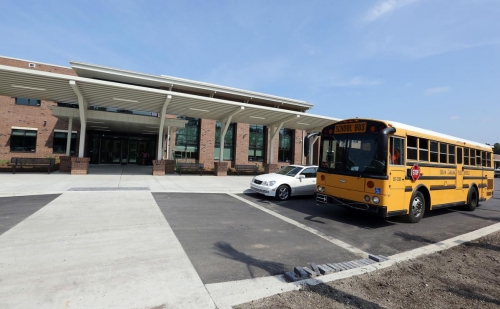South Carolina lawmakers believe bill could make school choice more affordable
WYFF quotes PPI President & CEO Ellen Weaver on the benefits an Education Scholarship Account (ESA) program would have for South Carolina students.
Some South Carolina lawmakers want to expand school choice and there’s a bill on the table that could help increase accessibility for families who may not otherwise have the financial means to send their children to non-public schools.
If passed, the legislation could set up a funding account for parents, known as an Education Scholarship Account or ESA.
“We saw and are seeing during this pandemic that one size doesn’t fit all students,” said Rep. Jason Elliott.
Elliott represents Greenville’s 22nd District and is a co-sponsor of the Bill, which has seen strong support.
“It would mean for individual families, there would be a savings account, an online-type savings account that the parent or guardian would be in charge of and the state portion of the per-people funding — which would be about $5,000 to $6,000 per student — would go into that account and would enable the families to decide where that money goes,” Elliott said.
The money, he said, could go to private or independent school tuition, books, transportation or other school services.
“ESAs are really just about creating the flexibility and allowing kids, no matter what the zip code or income is, to access the education environment that is best for them that meet their needs,” said Ellen Weaver, president and CEO of the Palmetto Promise Institute, a conservative think tank in South Carolina.
The ESA would apply to:
• Children whose family income is up to 200% of federal poverty guidelines (for a family of four, this would be up to $52,400 in annual household income)
• Children who are eligible for Medicaid
• Children who have participated in the South Carolina Early Reading Development & Education Program
• Children who are prior exceptional students
“I’m a product of South Carolina public schools from the beginning through post-graduate, but what I see in South Carolina is that we have many needs that have not been met and I think we start with building upon a better education system in South Carolina for all students by providing freedom and opportunity to empower parents to make this critical decision about what is best for their individual child,” Elliott said.
St. Joseph’s Catholic School in Greenville said an ESA could help.
“There are families who would love to be here, but they don’t think it’s a possibility at all, so they don’t even look,” said Keith Kiser, Headmaster at St. Joseph’s Catholic School in Greenville. “We’re trying to shout from the rooftops that we’ll work with you and we’ll make it work for you if it’s a good fit for you.”
The Roman Catholic Diocese of Charleston, in a statement, also said it would welcome a law creating ESA funding.
“Like every other school in our state, our Catholic schools suffered due to the pandemic. Despite the many challenges, faculty and staff continue to provide a quality education in a Christian environment. ESA funds will give parents the option to send their child or children to the school of their choice regardless of their ability to pay. We support any legislation that empowers low-income families,” said Maria A. Aselage, director of media relations for the Roman Catholic Diocese of Charleston.
Elliott said tuition for a large number of independent private schools in South Carolina does not exceed that $5,000 or $6,000 threshold.
He said there is hope that some schools may be willing to work with families unable to make that tuition mark, even after using ESA funds.





